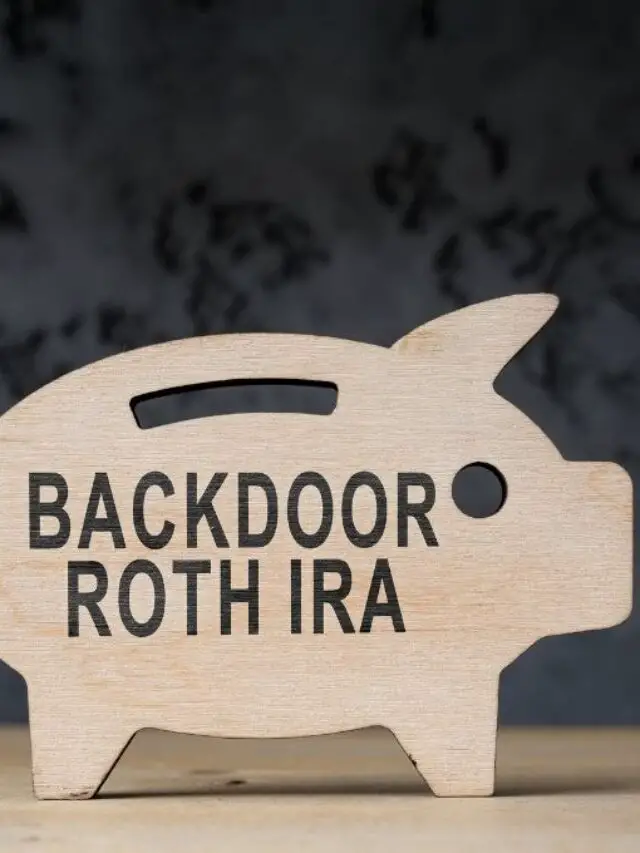What if you don’t pay back a payday loan!? Payday loans often appear as enticing, immediate solutions for those in a financial bind. However, these quick fixes come laden with a myriad of risks, not least of which is the punitive penalty for failing to repay on time. This article focuses on what ensues when payday loans go unpaid. From unexpected financial snags to legal ramifications, the journey can be disconcerting.
Table of Contents
| Key Takeaways | |
|---|---|
| ⇝ | If you don’t pay back a payday loan on time, the late payments on payday loans result in accumulating exorbitant fees. |
| ⇝ | Rollovers and renewals may appear helpful but usually worsen your financial situation. |
| ⇝ | Collection calls can not only be harassing but can also be regulated by law. |
| ⇝ | Failing to pay can result in legal action, including court appearances. |
| ⇝ | Negotiating with your payday lender can be a way out, albeit a complex one. |
The Monetary Quagmire: Accumulating Fees if You Don’t Pay Back a Payday Loan
If you don’t pay back a payday loan on time, the fees linked with late payday loan repayments can be downright daunting. Administrative fees, for instance, are often applied on top of the late fee itself. Sometimes these fees can total up to $50 or even more.
Comparing Types of Fees
| Fee Type | Average Value ($) |
| Late Fee | 20-40 |
| Admin Fee | 10-30 |
| Overdraft Fee | 30-50 |
The formula for Calculating Total Fees
| Total Fees = (Late Fee + Admin Fee) x (Number of Late Payments) + Overdraft Fee |
Imagine, you’re late on a $200 loan with an admin fee of $20 and a late fee of $30. If you’re late twice, you’d owe:
| (20 + 30) x 2 + 50 = 150 |
| Useful Tip |
|---|
| Never underestimate the fees. Always read the fine print to understand how these would stack up. |
The Never-ending Cycle: Rollovers & Renewals
Ah, the rollovers. They seem like a lifeline, allowing you extra time to repay. But each rollover adds more fees, and more interest. As a result, you find yourself entrapped in a financial morass from which extraction becomes increasingly laborious.
Bulleted Steps to Avoid Rollovers:
- Always check if rollovers are permitted in your state.
- Calculate the total cost of rollover before accepting.
- Explore alternative ways to meet your financial obligations.
Each rollover can add an estimated 25% to your loan amount. On a $200 loan, a single rollover could mean you now owe $250.
Discordant Harmonies: The Intrusive Nature of Collection Calls
When your financial obligations remain unmet, do prepare for an incessant barrage of collection calls, a decidedly unmelodious symphony of reminders. Understand, however, that these unsettling disturbances are not lawless; they find themselves shackled by the regulations set forth in the Fair Debt Collection Practices Act (FDCPA). Indeed, this federal statute delineates explicit temporal and ethical boundaries that collection agencies must respect.
Intricacies of FDCPA Regulations Governing Collection Calls
| Regulatory Dimension | Prescribed Normative Parameters |
| Temporal Constraints | Calls restricted to hours between 8 a.m. and 9 p.m., local time |
| Quantitative Limitations | Absence of a ceiling on call frequency |
| Semiotic Content | Explicit prohibition against threats, intimidation, or harassment |
| Useful Tip |
|---|
| Arm yourself with knowledge of the FDCPA. Transgressions are not to be tolerated and can be legally contested. |
The Pinnacle of Discomfort: Legal Repercussions and Court Visits
The looming specter of a court appearance signifies not merely an escalated fiscal issue but also entails additional encumbrances. Legal fees, court expenses, and the potential of wage garnishments cascade upon the borrower, further complicating an already labyrinthine ordeal.
Sequential Steps for Legal Preparedness
- Early engagement with a juridical advisor merits strong consideration.
- Rigorous documentation of each interaction, correspondence, and transaction with your lender is imperative.
- Accumulation of evidence, including demonstrable proof of prior payments, serves as an invaluable asset in legal proceedings.
The courtroom is a theater of proof and persuasion, where preparedness can considerably sway the scales of justice.
Negotiation: A Last Bastion of Resolution with Your Loan Provider
Establishing a mutually beneficial agreement with your lender might initially seem quixotic. Yet, the inherent motivation for a lender lies in recovering the lent sum, even if partial, as opposed to nothing. This dynamic renders your negotiating position somewhat less precarious than one might presume.
Strategies for Effective Negotiation
- Initiate dialogic channels with the lender prior to the loan’s maturity date, thereby demonstrating proactive responsibility.
- Outlay a repayment blueprint that exists within the realm of feasible execution.
- Formalize any concord reached by capturing it in written form, thereby guarding against future disputes or misunderstandings.
A well-executed negotiation may serve as a lifebuoy, potentially sparing you further financial sinking and possible legal entanglement.
Alternative Routes: What To Do When Repayment Is Impossible
Should the precarious chasm of unrepayable debt yawn before you, do not despair entirely; alternative pathways exist that may mitigate your predicament. Though not devoid of their own drawbacks, these options are certainly less calamitous than falling into a perpetual cycle of debt.
Table 3: Alternate Financial Mechanisms
| Strategy | Potential Benefits | Inherent Risks |
| Personal Loans | Lower interest rates | Credit score impact |
| Borrowing from Acquaintances | Often interest-free | Possible strain on relationships |
| Debt Consolidation | Single monthly payment | Fees and long-term commitment |
| Useful Tip |
|---|
| Prioritize options that offer long-term viability over temporary relief. |
Steps for Seeking Alternatives
- Evaluate the total sum of the outstanding debt alongside your income.
- Consult a financial advisor to explore all available options.
- Assess the impact of each option on both short-term and long-term financial health.
Taking an informed leap into one of these alternative routes might just be your financial salvation.
Beyond the Loan: Impact on Credit Score
If you don’t pay back a payday loan, the consequences reverberate beyond immediate financial hardships; they extend into the realm of credit scores, affecting your financial persona for years to come. Defaults and late payments get reported to credit bureaus, tarnishing your credit history.
Impacts on Credit Score
| Action | Credit Score Impact |
| Late Payment | Negative |
| Default | Severely Negative |
| Legal Actions | Catastrophic |
Credit scores influence everything from loan approvals to job applications. Therefore, an impaired score from unpaid loans renders your financial maneuverability decidedly suboptimal for an extended period.
| Useful Tip |
|---|
| Timely resolution of even a bad loan is preferable to a long-lasting impact on your credit score. |
Conclusion: A Web of Intricacies Unraveled
In summary, despite their alluring simplicity, payday loans can plunge borrowers into a cataclysm of financial and legal quandaries. Yet, while the route to resolution is labyrinthine, it remains navigable with judicious planning and meticulous action.
Additional Resources
- Books on Managing Debt: Titles such as “Your Money or Your Life” offer invaluable insights.
- Online Calculators: Tools that aid in understanding the compounding nature of loan interest.
- Legal Advice Websites: Many offer free initial consultations and have resources on debtor rights.
Call to Action
If you find yourself ensnared in the complexities of payday loan debt, take action now. Seek legal advice, consult financial planners, and most importantly, educate yourself.
Frequently Asked Questions (FAQs)
- What actions are lenders not allowed to take?
Lenders cannot threaten you with immediate arrest or legal action without due process. - Is it possible to go to jail if you don’t pay back a payday loan?
Debtor’s prisons are outlawed; however, legal proceedings can result in wage garnishment. - Do payday loans affect your credit score?
Unpaid loans are often sold to collection agencies, affecting your credit score negatively. - Can I negotiate a lower interest rate on my payday loan?
Most lenders are unwilling to negotiate interest rates, although other terms might be up for discussion. - How can I stop the collection calls?
Understand your rights under the FDCPA and ask the lender to cease calling in writing. - What are alternatives to payday loans?
Options such as personal loans or borrowing from friends and family can be less punitive. - Are there any non-profit organizations that can help?
Yes, numerous organizations offer free advice and sometimes even financial assistance. - Can a payday loan be included in bankruptcy?
It’s possible, although the implications can be complex and require legal advice. - Is there a statute of limitations on payday loan debt?
This varies by state but typically ranges from 3 to 6 years. - How do rollovers differ from renewals?
While similar, a rollover usually adds a new fee, whereas a renewal is essentially restarting the loan term.
Prashant Chauhan
Author @ Finance RuffleMeet Prashant Pratap Chauhan, the savvy founder behind Finance Ruffle, a hub for sharp financial insights and expert analysis in the realm of finance blogging.



